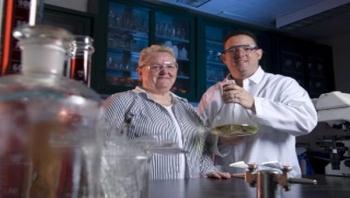
Sterile Processing
Latest News
Advertisement
Advertisement







A quiet solution amidst the rising clamor for answers in the current Ebola crisis comes from a surprising corner of America’s federal laboratory system. Scientists at a U.S. Army research lab in Natick, Mass. developed and patented a novel chemical system that is now being used to sterilize medical equipment and electronic items used in the treatment of patients on the front lines of the war on Ebola in West Africa. This came about through the transfer of the technology from the Army lab to a privately held company, ClorDiSys Solutions, which now produces, packages, and markets the solution on a worldwide basis.


















Advertisement
Advertisement
Trending on Infection Control Today
1
Bug of the Month: The Quiet Guest in the Dust
2
What Is Effective Preparedness for Emerging Respiratory Viruses? Shazia Irum, MSC, MBA, RN, CIC, CPHQ, FAPIC, answers
3
Continuous Photohydrolysis Disinfection Cuts MDROs, COVID-19, and Hospital Transfers in Long-Term Care, Study Finds
4
Influenza D and Canine Coronavirus: Why Underrecognized Animal Viruses May Be the Next Respiratory Threat
5